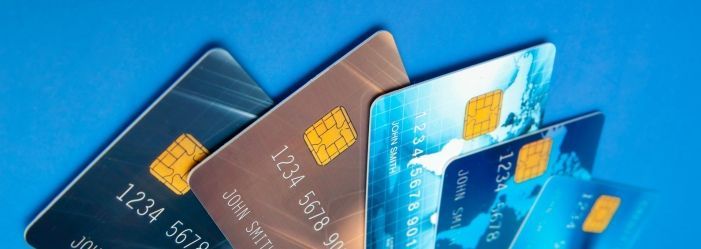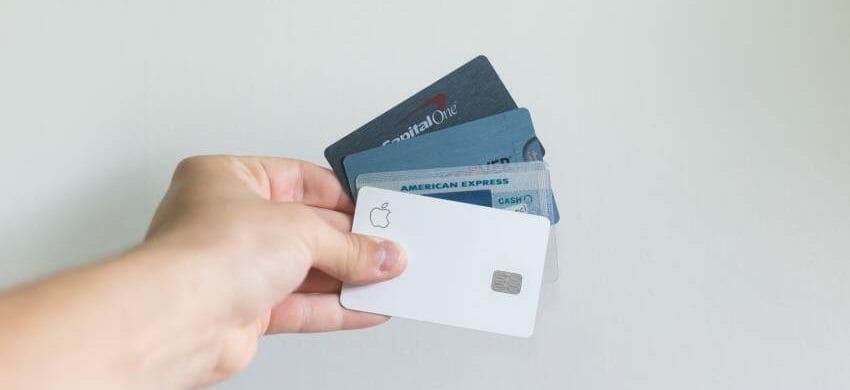Last Updated: January 26, 2023
Choosing the Best Card for Your Wallet

Disclaimer: We are not qualified legal or tax professionals and are not giving advice. Always speak with a qualified professional before making any legal or financial decisions.
If you’re looking for a new credit card, what type of credit card should you get? There are literally hundreds of options available and the correct one for you depends on your credit rating, credit history, and what you want from a credit card.
Why Should You Get a Credit Card?
Credit cards have pretty much become a necessity if you want to do things like book a hotel room or buy a plane ticket because they are easy to use when shopping in person or online. One of the perks about using a credit card is it’s more secure than using cash and there are also benefits, like rewards.
The downside is they might be a little too convenient to use, which can lead to unnecessary spending that could potentially put you over your budget.
How Do Credit Cards Work?
A credit card issuer decides on your credit limit based on your financial situation and credit history. The credit limit is the amount of money you can carry on your card. Next, they set an interest rate for you. This is based in part on the prime lending rate plus how much risk the company feels like it is taking by issuing you a credit card. Next, you still have fees and penalties.
The fees are variable and based on your card. The penalties are levied against your account if you go over your credit limit or miss a monthly payment. Missing a payment may result in a fine, increased interest rate, or even both.
For more information on interest rates, check out What is a Good APR for a Credit Card
The credit card company also sets a minimum payment that you must pay each month if you carry a balance. You will rarely be able to pay off a credit card making only minimum payments and the credit company will only profit with the interest charges.
As long as you pay your credit card off each month, you won’t get into trouble using it. It’s when you charge more than you actually can pay back each month that credit cards can become a problem.
What are the Different Types of Credit Cards?
There are many different types of credit cards out there but there are two main categories, secured and unsecured. If you have a secured card, the issuer will require you to set a certain amount of money in a savings account.
This then becomes your credit limit. If you make monthly payments or pay back the credit card, the savings are untouched. If you fail to make a payment, the payment is removed from your account and your credit limit is lowered.
Secured cards are great for your first credit card or for people trying to build or rebuild their credit history. An unsecured card has a credit limit, but nothing is guaranteed that you will pay it back, except for the threat of fines and collections.
Within the two categories of credit cards, there are many types. Let’s take a look at each one.
- Low-Interest Credit Cards
- Annual interest rates (APR) are lower than other cards or 0% APR promotion
- Generally offered by credit unions
- Not much in perks like cash back or air miles
- 0% APR promotions look great but check the interest rate after the promotion. The card may turn out to be very expensive
- Balance Transfer Credit Cards
- Allows you to move debt from one card to another with 0% APR on the balance for 6 to 21 months
- May have an upfront fee based on how much you are transferring
- Generally no rewards
- APR after the introductory period can be very high
- Rewards Cards
- Cashback credit cards
- Earn a certain percentage on purchases
- Can be all purchases or selected categories based on purchase type or monthly promotions (gas stations one month, hotels another, etc)
- Travel credit cards
- Earn air miles, hotel stays, and other travel perks.
- Generally branded
- Building or Rebuilding Credit
- Secured credit cards
- Requires a security deposit
- Student credit cards
- Must be a student
- No security deposit
- Many have perks
- Unsecured credit cards for bad or limited credit
- Fees or APR can be outrageously high
- Store Credit Cards
- Issued by a specific chain such as Target or Walmart
- May have perks or earn purchasing credit at the store
- generally have higher interest rates and lower credit limits
- Closed loop cards allow you to use the card ONLY at that specific chain
- Open loop cards allow you to use the card anywhere
- Small Business Credit Cards
- Designed for business owners
How to Choose The Right Credit Card
Because card offerings change regularly, instead of offering specific cards, check out this decision tree to help guide yourself to the best credit card for you.
- Do you have good or excellent credit?
- No – look for a no-annual-fee card, starter card, student card, or secured card
- Yes – go to question 2
- Will you pay in full each month?
- No – look for a 0% APR or 0% balance transfer card. (And then pay it off as quickly as possible)
- Yes – go to question 3
- Do you fly or stay in hotels a lot?
- No – look for a cash-back credit card
- Yes – look for a travel card if you plan to earn more than 30,000 flight miles or 20 hotel nights each year. Otherwise, your points are devalued at the end of each year
- Do you plan to keep your card for more than 1 year?
- No – focus on initial rewards and bonuses
- Yes – look for the best ongoing rewards and lowest fees
Are You Deep in Credit Card Debt?
If you have fallen behind on your credit card payments and you have more than $10,000 in unsecured credit card debt, Pacific Debt, Inc may be able to help you settle your debt and learn to live debt-free. Contact Pacific Debt today for more information on how we can help you. If we determine that we are not the correct program for your unique situation, we will refer you to a trusted partner more suited for your needs.
Use Your Credit Card Responsibly
While credit cards offer convenience and even rewards, it's important to use them responsibly to avoid debt trouble. Here are some healthy habits when using your new credit card:
- Pay off the full statement balance each month to avoid interest charges. Carrying a balance and paying interest defeats the purpose of reward cards and leads to debt. Set up automatic payments for the full balance.
- Check your statement regularly for fraudulent activity. Scan charges to make sure none are unauthorized. Report any suspicious activity immediately.
- Set up automatic payments to ensure on-time monthly payments. Late fees can negate any rewards earned, so set up autopay for at least the minimum due.
- Stay below your credit limit to maintain good credit. Using too much of your limit can hurt your credit score. Set account alerts for when you reach 30%, 50%, etc of your limit.
By using your card responsibly, you can build good credit and take advantage of card features like purchase protections and rewards
FAQs
Conclusion
With hundreds of credit cards on the market, it can feel overwhelming to find the right one. By first checking your credit score and clearly defining your needs and goals, you can narrow down your options considerably. Compare the fine print like interest rates, fees, and rewards across a few top contenders. Look for a card that aligns well with your spending categories and budget without tempting you into debt.
Apply for a card you can manage responsibly. The right credit card for you depends on factors like your credit score, whether you carry a balance or pay in full, and whether you want to earn rewards or build a credit history. Continually monitor and adjust your credit limits and utilization as your financial situation evolves. You may need a student card at first and then graduate with a premium travel rewards card years later.
No matter where you are in your financial journey, make sure you use credit cards as tools, not debt traps. Consistently making on-time payments and keeping utilization low will help build your credit. Reach out to our specialists anytime for personalized advice on finding and responsibly using credit cards.
Pacific Debt, Inc.
We are an award-winning debt settlement company that has been successfully settling debts since 2002. In fact, we’ve settled more than $3 million debt! We are proud to be consistently named one of the best debt settlement companies for years. In 2020, our debt specialists earned two #1 rankings for customer service.
Debt settlement involves negotiating with debt collectors and creditors to settle your debts for a lower amount than you currently owe. While we negotiate for you, we help you set up a savings plan so that you can try to pay off all your bills.
Pacific Debt, Inc. is accredited with the Consumer Debt Relief Initiative (CDRI) and is an A+ member of the Better Business Bureau. Our rankings in Top Consumer Reviews, Top Ten Reviews, Consumers Advocate, Consumer Affairs, Trust Pilot, and US News and World Report are consistently good.
Pacific Debt is currently providing debt relief coverage in the following states:
Alabama, Alaska, Arizona, Arkansas, California, Colorado, District of Columbia, Florida, Idaho, Indiana, Kentucky, Louisiana, Massachusetts, Maryland, Michigan, Minnesota, Missouri, Mississippi, Montana, North Carolina, Nebraska, New Mexico, New York, Oklahoma, Pennsylvania, South Dakota, Texas, Utah, Virginia, Wisconsin
* Other states can be connected to one of our trusted partners
* Residents in other states can be connected to one of our trusted partners
For more information, contact one of our
debt specialists today. The initial consultation is free, and our debt experts will explain your options to you.
*Disclaimer: Pacific Debt Relief explicitly states that it is not a credit repair organization, and its program does not aim to improve individuals' credit scores. The information provided here is intended solely for educational purposes, aiding consumers in making informed decisions regarding credit and debt matters. The content does not constitute legal or financial advice. Pacific Debt Relief strongly advises individuals to seek the counsel of qualified professionals before undertaking any legal or financial actions.
Reduce Your Credit Card Debt By Up to Half

BBB Reviews | 4.9/5.0 Rating









 Do Not Sell My Personal Information
Do Not Sell My Personal Information